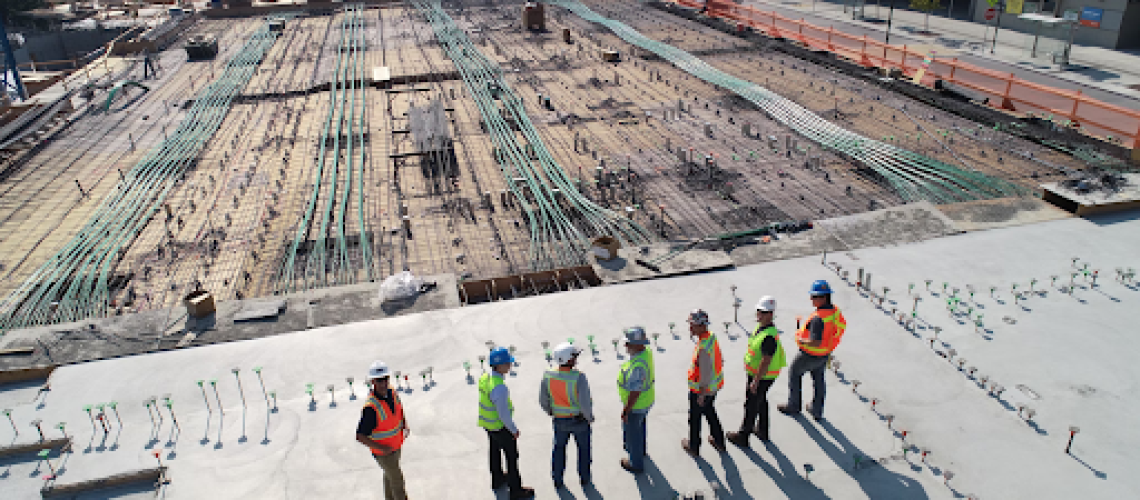Managing a team of construction contractors needs strong organization, clear communication, and attention to detail. Projects often have multiple contractors and subcontractors working together. Good management ensures tasks stay on track, controls budgets, and meets quality standards. It might seem challenging at first, but coordinating a team of contractors is doable with the right approach.
Here is how to manage a team of construction contractors:
Define Roles and Responsibilities Clearly
Each contractor needs to know what they are responsible for and how they fit into the project. This can help avoid confusion and ensure the right person handles each task.
It is important to break down jobs in detail and assign them to the right contractors or subcontractors. For example, if someone is skilled in plumbing, ensure they understand exactly what’s needed for their work, including deadlines and quality standards. Regular check-ins help keep everyone on track with the project’s goals.
Set Transparent and Realistic Timelines
Sticking to schedules is crucial in construction. Any delay can affect the whole project. Setting a realistic timeline and sharing it with all the contractors is important. Clear communication about deadlines helps everyone manage their tasks well and keeps things moving.
Including extra time for unexpected delays helps keep the schedule on track if something goes wrong. Share a main plan with the team and encourage contractors to flag potential problems early. This way, adjustments can be made if needed. Being proactive keeps everyone aligned and lowers the stress of last-minute surprises.
Communication and Updates
Keeping open communication with contractors is critical to project management. Regular updates and meetings allow for discussing progress, addressing challenges, and adjusting plans when needed. This doesn’t mean meeting daily but having regular check-ins, like weekly or bi-weekly, to ensure everyone is aligned.
Encourage contractors to report any potential delays or issues early. Open lines of communication build a strong working relationship and create trust, which leads to a collaborative environment. Quick updates help resolve minor issues before they become bigger problems, keeping everyone focused and productive.
Utilize Contractor Accounting Software
Contractor accounting software is a valuable tool for handling finances in construction. It streamlines billing, tracks payments, and monitors project budgets, making financial management more organized. Contractors often work with different schedules and payment terms, and this software makes tracking expenses easier. It ensures everyone gets paid on time and that costs stay within budget.
Accounting software helps keep the project’s budget in check and ensures everyone knows what’s happening. Contractors can quickly send their invoices, and managers can approve them immediately without paperwork slowing down. This real-time tracking cuts down on admin headaches and gives clear financial reports, making it easier to manage project finances effectively.
Conduct Regular Quality Checks
Keeping an eye on quality is key in construction. Regular inspections are essential to maintain high standards throughout the project and pinpoint areas needing changes. Checking quality at different stages allows for tweaks without causing significant disruptions, ensuring the final result meets expectations.
Adding these checks to the project schedule helps monitor progress and ensures that each phase meets the quality mark. This method also allows contractors to know from the start what is required of them, helping them maintain the quality of their work. Paying attention to quality during the project results in a polished finish that meets or exceeds client expectations.
Motivate and Recognize Contractors
Recognizing contractors’ hard work can help keep them motivated and happy at work. While the project drives many, a nod to their efforts and dedication can make the workplace more positive. Simple acts like praising a job well done or providing good feedback help energize the team.
Think about setting up rewards or acknowledging star performers. Contractors who feel valued tend to put in extra effort, creating a team that takes pride in their work. This boosts productivity and improves the overall quality of the project.
Address Conflicts Quickly and Effectively
Conflicts in the bustling construction industry can arise from schedule overlaps, resource management, or personal differences. It’s important to tackle these issues directly and promptly to maintain a happy team and keep the project on track.
Encourage open communication when dealing with disagreements and aim for solutions that satisfy everyone involved. Sometimes, just listening to each contractor’s perspective and offering a platform for discussion can prevent problems from escalating. Resolving conflicts helps maintain good team relations and keeps the project running smoothly.
Conduct Post-Project Reviews
Once the project wraps up, a review can provide valuable insights for future endeavours. Talking about what went well and spotting areas that need work can refine how things are managed. This feedback helps the manager and contractors see their strengths and determine what changes might be required next time.
Looking back at past projects can highlight great work and gather helpful information for improvement. Getting feedback from contractors offers different views that managers might miss. These reviews are part of a process that keeps improving, making managing future projects easier.
Flexibility and Adaptability
Construction projects often don’t go as planned. Weather changes, material shortages, or unexpected technical issues can shift the timeline or scope. Being flexible is important for a project manager. Being adaptable means that you can adjust plans quickly and smartly without affecting the main goals. The best construction jobs are led by a manager who can make fast, sensible choices when surprises pop up, as it shows you’re responsive and a strong leader.
Encourage your contractors to be flexible, too. Let them know that being adaptable is part of the job, and changes are made to benefit the whole project. This helps create a resilient team that stays on track despite challenges. Flexible management encourages a dynamic work setting that can handle the uncertainties standard in construction.
Effective Documentation Practices
Good documentation is key to running construction projects smoothly. Organizing everything, from contracts and blueprints to daily progress records and change orders, helps everyone find the necessary information. Documentation also gives a solid record of decisions, deals, and changes, protecting all parties if disputes or misunderstandings happen. Proper documentation reduces the chance of errors, saving time, and managing costs in construction projects.
Make it a practice to Update documents regularly and encourage contractors to do the same. Digital tools help store and share files easily, so everyone can access the latest information whenever needed. Effective documentation improves transparency, building trust between the project manager and contractors. This neat way of handling things makes tracking progress easier and simplifies final reporting, giving you a clear view of each stage and what has been completed.
Guest writer.













